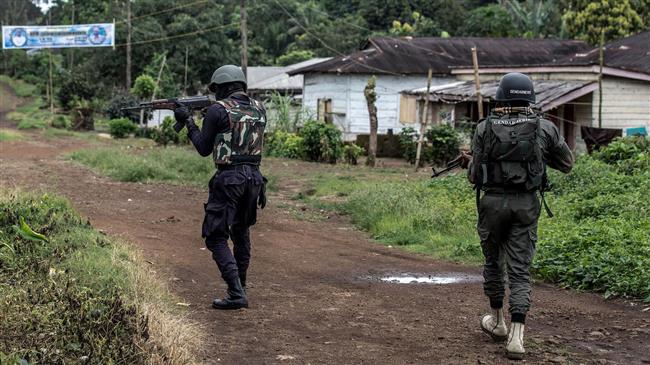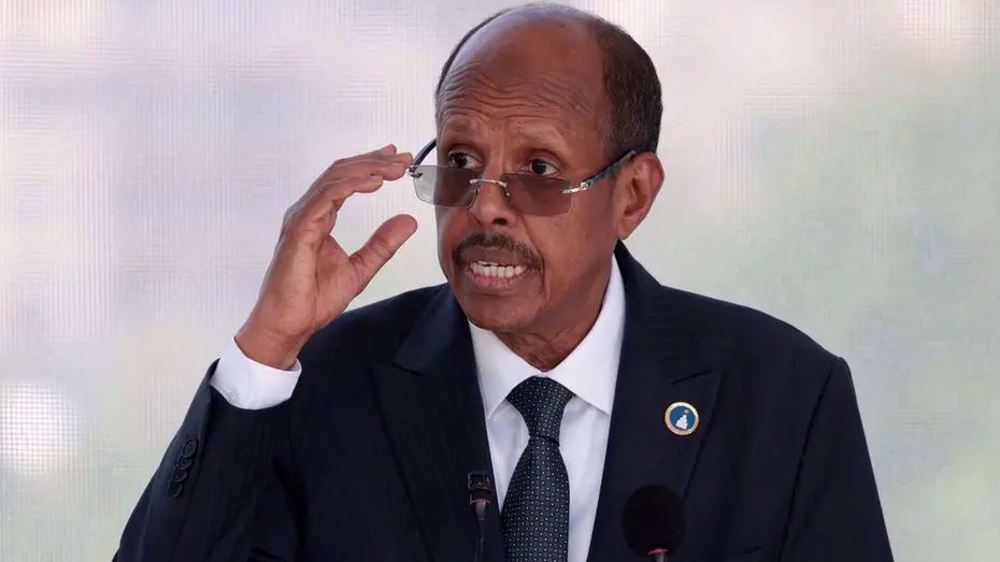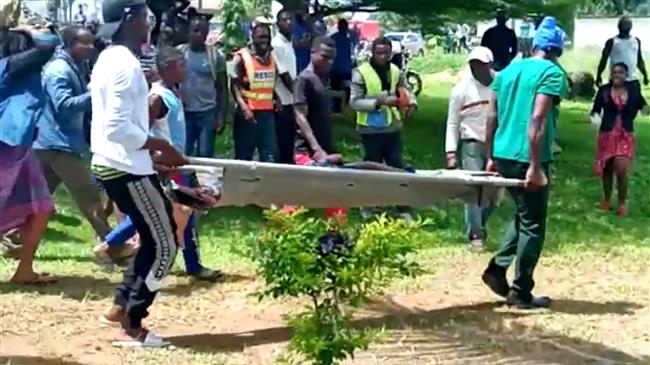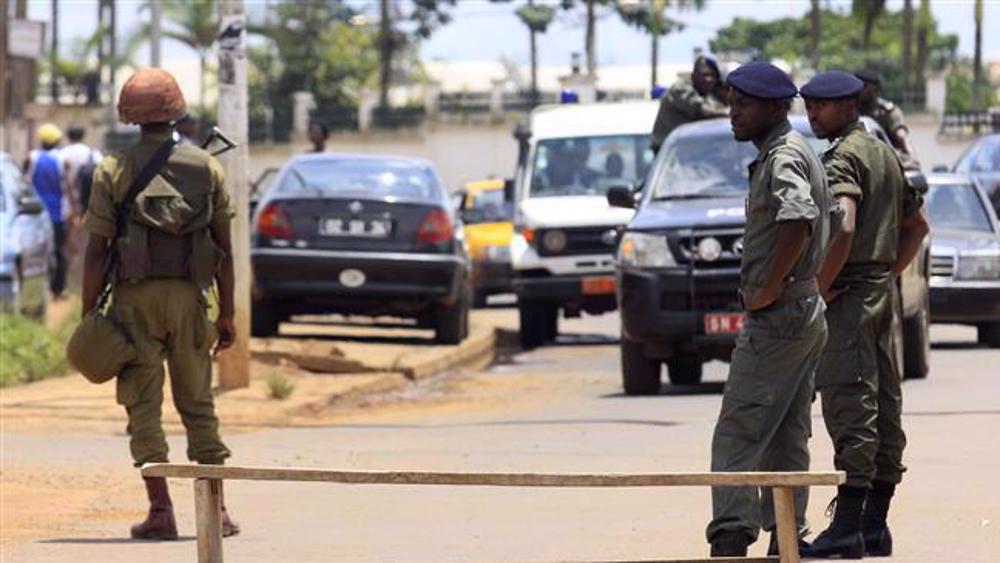Suicide bombing, gun attack in Cameroon kill 13: UN
A female suicide bomber in northern Cameroon has killed at least 13 people by detonating her explosives in a crowd fleeing an armed attack by unidentified gunmen, a United Nations security report unveiled.
The assailants launched the attack on the town of Mozogo in the Far North Region of the central African country, near the border with Nigeria, by first firing their guns into the air early on Friday morning, according to the UN note.
“Frightened, the population fled into the park. It was at this point that a woman carrying an explosive charge allegedly entered the fleeing crowd and detonated her charge,” said the UN note.
No group has yet claimed responsibility for the bloody attack, whose victims included women and children too.
However, similar attacks across the border have been launched by militants from the Daesh-linked Boko Haram terrorist group based in Nigeria, who have also remained active in the area for the past decade.
The attack came just two days after four soldiers and a senior government official were killed in Cameroon's restive North West Region after their vehicle struck an improvised explosive device. Five other people were also seriously injured.
The vehicle was travelling in a military convoy when it was ambushed by armed secessionists on Wednesday, according to a Reuters report.
No one claimed responsibility for that attack either.
The development comes amid the surging emergence of militant groups across Africa in response to the persisting presence of Western military presence in the continent – notably those from France and the US.
Earlier this week a French military drone strike in Mali killed 19 civilians attending a wedding event in a remote village amid France’s persisting military intervention in its former African colony under the pretext of fighting rising militancy in the impoverished nation.
The aerial strike in central Mali’s isolated Douentza area came at a moment of growing anti-French sentiment and armed resistance across the West African country in response to the eight-year military presence of the former colonial power.
The French army, however, insisted that the targets were “Islamist fighters,” claiming that their identities were confirmed by its drones prior to the bloody attack and subsequent checks following the strike.
France maintains a military force of more than 5,100 in Mali and other former colonies in West Africa in purported efforts to counter militants it claims are linked to the al-Qaeda and Daesh terrorist groups.
The military intervention, however, has come at a cost. Five French soldiers were killed in Mali in recent days and Malian citizens have protested France’s military presence in the streets as well as on social media platforms.
Two French soldiers were killed earlier this week as an explosion hit their armored vehicle during an “intelligence” gathering mission in Mali’s eastern Menaka region, bringing the number of French soldiers killed in the nation to fifty.
The attack came less than a week after three more French troops were also killed in its former colony by an improvised explosive device in the southern region of Hombori.
This is while France is still trying to maintain power with its significant military presence in Africa. It has thousands of soldiers spread in bases across the arid Sahel region of West Africa below the Sahara, purportedly waging “counter-insurgency” operations.
Violence, however, has steadily worsened in the region with militant groups using northern Mali to launch attacks on neighboring countries.
Just last week, nearly 100 people were killed and dozens more injured in simultaneous attacks on two villages by militants in Western Niger, local officials say.
The attacks took place last Saturday in the villages of Tchoma Bangou and Zaroumadareye, which are located 120 kilometres north of the capital Niamey.
More than 30,000 people have been killed and nearly 3 million displaced in a decade of Boko Haram's violence in West Africa, according to the UN Office for the Coordination of Humanitarian Affairs.
Boko Haram and the West Africa Province (ISWAP) branch of the Daesh Takfiri terrorist group have increasingly targeted loggers, herders and fishermen in their violent campaign, accusing them of spying and passing information to the military and the local militia fighting them.
Also last month the United Nations issued a warning about an imminent humanitarian crisis unfolding in northern Mozambique, where at least 400,000 people have already been forced to flee their homes.
Mozambique's northernmost province of Cabo Delgado, which is rich in natural gas resources and hosts drilling and pumping stations estimated to be worth some $60 billion, faces regular terrorist attacks launched by militant groups causing insecurity in the region.
Extremist groups, according to the UN, have caused havoc in Mozambique's northern Cabo Delgado province over the past three years, ravaging villages and towns.
Little is known about Mozambique's extremists, who call themselves Al-Shabab with no known links to a terrorist group of the same name operating in Somalia.
Iraqi resistance leader urges Americans to ‘reclaim’ country from Israeli ‘puppet Trump
Iran blasts US-Israeli use of autonomous killer systems against civilians as 'war crime'
US-Israeli aggression left Tehran with no choice but to defend Itself: President Pezeshkian
Iran urges immediate intl. action against US attacks on schools
Iraq won’t allow terror groups to cross border into Iran: Security official
Iran’s security chief: Does America come first or Israel with 500 US soldiers killed?
Iran warns all Israeli embassies ‘legitimate targets’ if Lebanon embassy attacked
IRGC pounds bases of anti-Iran terrorist groups in Iraqi Kurdistan

















 This makes it easy to access the Press TV website
This makes it easy to access the Press TV website